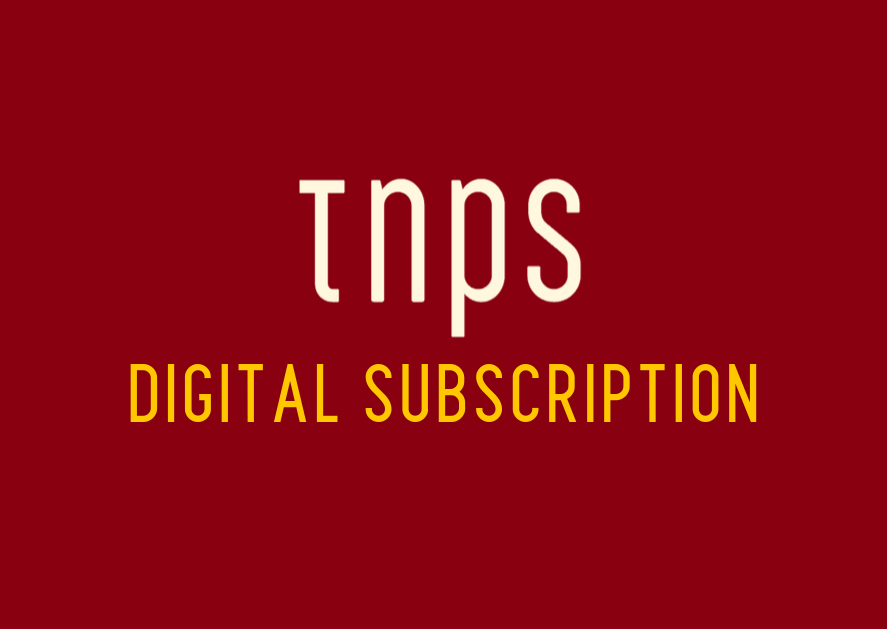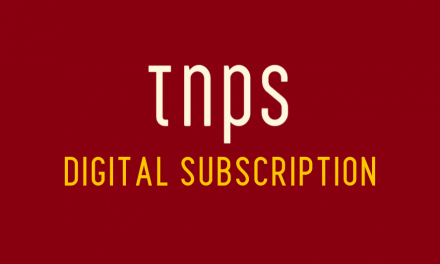Good luck with that, Niclas, given that the UK Society of Authors has already launched an attack on Spotify and subscription in the UK.
It may only be October, but digital books subscription service BookBeat has announced its annual Year of Audiobooks report for Finland, and it makes a very strong case for publishers to get on board with subscription.
Driven by women under 45, BookBeat Finland now has 300,000 paying subscribers in a country of just 5.5 million people. That’s 5.5% of the Finnish population subscribing to BookBeat, amid stiff competition from rival players that include Storytel and Nextory.
It’s a reminder that small-population, small-language countries like the Nordics can not just hold their own, but can lead the way in the brave new world of digital publishing.
The overall arch of the BookBeat report should come as no surprise to TNPS readers. This from way back in 2018:

BookBeat launched in Finland in 2016, and by 2018 both Sweden and Finland were in profit, although an attempt to break into the English-language markets faced Luddite opposition from British publishers.

That resistance may have been reduced when BookBeat abandoned the unlimited subscription model.

More about BookBeat UK’s prospects later. Meanwhile, what else have we learned about BookBeat Finland?
Per the latest review for 2022, “consumer behaviour looks much the same as in 2022: the market continues to grow and the biggest growth is in the groups of new customers who are under 45 years old and women. As in previous years, all consumer groups continue to grow.”
Of course one of the unsung beauties of digital is the potential for granular deep dives into said consumer behaviour.
“The weekly and daily listening rhythm is well established : in the morning before the start of the work and school days, and again during the transition of the afternoon and then again after 9 pm, when going to rest. Listening habits are very similar in different countries, but a special Finnish feature is listening to audiobooks even more enthusiastically just before going to bed. Swedes listen less than others on Friday and Saturday, while Germans listen more during the day. Audiobooks are a permanent part of life all year round.”
Alongside the usual lists of popular authors and titles, BookBeat shares more detail, such as how fast a book-lover listens, a concept I wish I’d known about back when I was at school. Always being told I talked too fast (better than too much, I suppose), my response to teachers that they should listen faster was a guarantee of detention. But as BookBeat explains, listening faster is in fact the preferred choice for one in three Finns:
“70% of listening takes place at the same playback speed as the recording of the lecture itself. About 30% speeds up reading somewhat, but usually only a little.”
This is something to explore another day, but I can’t help but ponder if, when a listener is paying by the hour for consumption, it doesn’t incentivise the person footing the bill to try faster speeds, to get more books listened to in the paid time. Because that opens up questions about how much the listener actually values the narration quality, which must surely be compromised by increasing the intended delivery speed, even by a small amount. That in turn suggests to me these listeners – almost a third in the case of BookBeat Finland – may well be more amenable to AI-narrated texts than the purists who want the narration as the narrator intended. That’s something to come back to.
Unsurprisingly, 95% of listening on BookBeat Finland is to Finnish-language audiobooks. And BookTok Finland is having an impact on consumption of Finnish titles.
Okay, so that’s the BookBeat Finland annual summary summarised. Now let’s get to the meat of this essay.
What’s important here is that, sales numbers aside, almost none of the above invaluable data can be extracted from printed books, even if sold online. And this is why digital books, and especially digital books in a subscription model, offer so much more for publishers and authors alike. Just how much data BookBeat shares with publishers is something only they will know, but as Beat Technology AS ‘s Nathan Hull has explained on many occasions, the amount of data potentially available through these models is staggering, and to savvy publishers and authors, invaluable.
Bonnier-owned BookBeat claims to be the most popular audiobook service in Finland, absent any rebuttal from the only possible contenders, Nextory and Storytel, and the decision to abandon the unlimited subscription option does not appear to have harmed its position.

The wider impact of Spotify’s entry into the English-language markets with its new premium model is something I’ll be taking a deep dive into just as soon as the dust settles, but I’m sure BookBeat CEO Niclas Sandin already has mixed feelings about Spotify’s leap into the UK audiobook market. On the one hand, proof if needed that Sandin was right to stay with the UK, and, just maybe, he’ll now be able to get better deals from UK publishers.
But Spotify is big-brand competition, alongside Audible, while BookBeat has no real brand-recognition in the UK and, at this stage at least, no significant competitive English-language content.
My guess is that, the dam broken, Sandin will indeed now be able to get the UK deals he needed to make something of BookBeat UK, and likely that’s already been underway since even before the Spotify deal with UK publishers was officially announced.
Good luck with that, Niclas, given that the UK Society of Authors has already launched an attack on Spotify Premium and subscription in the UK. Not that that should worry Sandin in any way. Publishers will follow their best interests, regardless of what author-centric organisations may have to say.
For my money, we’ll likely see a quick deal with BookBeat UK along similar lines to that with Spotify. The SoA’s objections will be noisy and well-intentioned, but are not going to have Daniel Ek quaking in his boots.
Here’s the thing: Amid genuine concern for author revenues and rights, there is in the Society of Authors’ protests the usual mish-mash of ill-thought out resistance to the very idea that subscription might somehow benefit all parties.
No matter that Amazon-owned Audible is doing authors and publishers few favours. Who cares if Amazon owns the UK audiobook market? Let’s rant against (raise those fingers for the air quotes!) “subscription,” keep Amazon in a position of power, and f**k the authors of shorter audiobooks that consistently lose out under Amazon’s monthly-credit model while Big Name Long-Hours audiobooks reap the benefits.
Like with generative-AI, there are of course arguments to be heard on both sides, but Nicola Solomon has not made a credible case thus far against Spotify and against the “new” subscription model now being rolled out. The SoA’s latest “demands” (never a good term to throw about when supposedly trying to appear the voice of reason) is more posturing than protection, that looks to protect the status quo rather than arrive at a better deal for all parties.
And given the SoA is not going to see British writers on picket-lines over this, it becomes all the more about posturing, leaving publishers and platforms to reap the shared rewards of New Subscription.
And that will include Niclas Sandin’s BookBeat. If he can get the deals, he’ll in a strong position to be #3 in the UK, and earn real payback for the BookBeat UK wilderness years.
How so? Here’s the thing: With all the infrastructure already in place, Sandin has a clear advantage over Nextory (no UK presence) and Storytel (a token presence through the UK arm of Audiobooks.com).
Storytel could leverage its Audiobook.com position to make a serious play, if Johannes Larcher can muster shareholder support enough to mount a challenge, and just maybe we’ll see that unfold soon. But Larcher also needs to put on a real show of strength in the USA as Spotify prepares its US upgrade to Premium in direct competition with Storytel-owned Audiobooks.com and Audible, and he may elect to write off the UK option as a distraction, safe in the knowledge Shadi Bitar is unlikely to be stepping into the void with Nextory.
Bitar, of course, is a legend for his two breathtakingly ambitious acquisitions in 2021, that let him casually stroll into two key European markets in a very strong position.


And if there were a meaningful contender in the UK, I’ve no doubt Bitar would be considering something similar now, but off-hand no contenders spring to mind, so that looks improbable. But Shadi, feel free to prove me wrong.
Meantime, sorry Nicola Solomon, but the UK audiobook market has just become a little more exciting for all parties, authors included.





